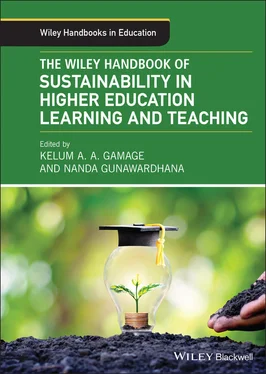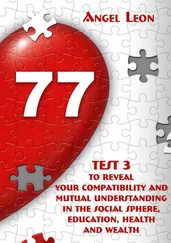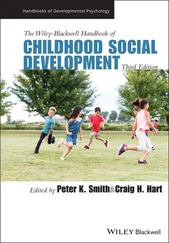46 Köhler, J., Geels, F.W., Kern, F. et al. (2019). An agenda for sustainability transitions research: state of the art and future directions. Environmental Innovation and Societal Transitions. 31: 1–32.
47 Kothari, A., Demaria, F., and Acosta, A. (2014). Buen Vivir, degrowth and ecological Swaraj: alternatives to sustainable development and the green economy. Development 57 (3): 362–375.
48 Kristjánsson, K. (2006). Habituated reason: Aristotle and the ‘paradox of moral education’. Theory and Research in Education. 4 (1): 101–122.
49 Kristjánsson, K. (2013). Ten myths about character, virtue and virtue education–plus three well‐founded misgivings. British Journal of Educational Studies. 61 (3): 269–287.
50 Kristjánsson, K. (2015). Aristotelian Character Education. New York: Routledge.
51 Kristjansson, K. (2016). Flourishing as the aim of education: towards an extended, ‘enchanted’ Aristotelian account. Oxford Review of Education. 42 (6): 707–720.
52 Kristjánsson, K., Fowers, B., Darnell, C., and Pollard, D. (2021). Phronesis (practical wisdom) as a type of contextual integrative thinking. Review of General Psychology 1–9.
53 La Forge, P.G. (2004). Cultivating moral imagination through meditation. Journal of Business Ethics. 51 (1): 15–29.
54 MacIntyre, A.C. (1999). Dependent Rational Animals: Why Human Beings Need the Virtues, vol. 20. Chicago: Open Court Publishing.
55 MacIntyre, A. (2007 [1981]). After Virtue: A Study in Moral Theory. London: Duckworth.
56 Maiteny, P. (2005). Education for sustainability and development: psycho‐emotional blocks and catalysts. Development Education Journal. 11 (2): 12.
57 McVea, J.F. (2007). Constructing good decisions in ethically charged situations: the role of dramatic rehearsal. Journal of Business Ethics. 70 (4): 375–390.
58 Meadows, D.H. (2008). Thinking in Systems: A Primer. Chelsea Green.
59 Mezirow, J. (2003). Transformative learning as discourse. Journal of Transformative Education. 1 (1): 58–63.
60 Mitchell, K. (2003). Educating the national citizen in neoliberal times: from the multicultural self to the strategic cosmopolitan. Transactions of the Institute of British Geographers. 28 (4): 387–403.
61 Mustakova‐Possardt, E. (2004). Education for critical moral consciousness. Journal of Moral Education. 33 (3): 245–269.
62 Nussbaum, M.C. (1999). Virtue ethics: a misleading category? The Journal of Ethics. 3 (3): 163–201.
63 Orr, D.W. (1990). What is education for? In: Hope Is an Imperative. The Essential David Orr (ed. D.W. Orr), 237–245. Washington DC: Island Press.
64 Peterson, C. and Seligman, M.E. (2004). Character Strengths and Virtues: A Handbook and Classification, vol. 1. New York: Oxford University Press.
65 Rittel, H.W. and Webber, M.M. (1973). Dilemmas in a general theory of planning. Policy Sciences. 4 (2): 155–169.
66 Roberts, R.C. (2017). Varieties of virtue ethics. In: Varieties of Virtue Ethics (ed. D. Carr, J. Arthur and K. Kristjánsson), 17–34. London: Springer.
67 Rozin, P., Markwith, M., and Stoess, C. (1997). Moralization and becoming a vegetarian: the transformation of preferences into values and the recruitment of disgust. Psychological Science. 8 (2): 67–73.
68 Russell, D.C. (2009). Practical Intelligence and the Virtues. New York: Oxford University Press.
69 Russell, D.C. (2015). Aristotle on cultivating virtue. In: Cultivating Virtue: Perspectives from Philosophy, Theology, and Psychology (ed. N.E. Snow), 17–48. New York: Oxford University Press.
70 de Ruyter, D.J. and Steutel, J.W. (2013). The promotion of moral ideals in schools; what the state may or may not demand. Journal of Moral Education. 42 (2): 177–192.
71 Salzberg, S. (1995). Loving‐Kindness: The Revolutionary Art of Happiness. Boston, MA: Shambhala.
72 Salzberg, S. (2005). The Force of Kindness: Change Your Life with Love and Compassion. Boulder, CO: Sounds True.
73 Sanderse, W. (2012). Character Education: A Neo‐Aristotelian Approach to the Philosophy, Psychology and Education of Virtue. Delft: Eburon Academic Publishers.
74 Sanderse, W. (2013). The meaning of role modelling in moral and character education. Journal of Moral Education. 42 (1): 28–42.
75 Sandler, R. (2018). Environmental Ethics. New York: Oxford University Press.
76 Schwartz, B. and Sharpe, K.E. (2006). Practical wisdom: Aristotle meets positive psychology. Journal of Happiness Studies. 7 (3): 377–395.
77 Sherman, N. (1989). The Fabric of Character: Aristotle's Theory of Virtue. Oxford: Clarendon Press.
78 Sipos, Y., Battisti, B., and Grimm, K. (2008). Achieving transformative sustainability learning: engaging head, hands and heart. International Journal of Sustainability in Higher Education. 9 (1): 68–86.
79 Steffen, W., Broadgate, W., Deutsch, L. et al. (2015). The trajectory of the Anthropocene: the great acceleration. The Anthropocene Review. 2 (1): 81–98.
80 Sterling, S. (2011). Transformative learning and sustainability: sketching the conceptual ground. Learning and Teaching in Higher Education. 5 (11): 17–33.
81 Tilbury, D. (2011). Higher education for sustainability: a global overview of commitment and progress. Higher Education in the World. 4 (1): 18–28.
82 Treanor, B. (2014). Emplotting Virtue: A Narrative Approach to Environmental Virtue Ethics. New York: Suny Press.
83 UNCED (1992). Report of the United Nations Conference on Environment and Development, Rio de Janeiro. New York: United Nations.
84 UNECE (2012). Learning for the future. Competences in education for sustainable development. Geneva: UNECE.
85 UNESCO (2005). UN Decade for Education for Sustainable Development (2005–2014). Paris: UNESCO.
86 UNESCO (2008). Education and the search for a sustainable future, policy dialogue 1: ESD and development policy. UNESCO. https://archive.erisee.org/sites/default/files/UNESCO‐Education%20and%20the%20search%20for%20a%20sustainable%20future%20%282009%29.pdf(accessed 23 July 2021).
87 Upton, C. (2017). Meditation and the cultivation of virtue. Philosophical Psychology. 30 (4): 373–394.
88 Vare, P. and Scott, W. (2007). Learning for a change: exploring the relationship between education and sustainable development. Journal of Education for Sustainable Development. 1 (2): 191–198.
89 Waddock, S. (2010). Finding wisdom within—the role of seeing and reflective practice in developing moral imagination, aesthetic sensibility, and systems understanding. Journal of Business Ethics Education. 7: 177–196.
90 Wals, A.E. (2010). Mirroring, gestalt switching and transformative social learning: stepping stones for developing sustainability competence. International Journal of Sustainability in Higher Education. 4: 380–390.
91 Wals, A.E. (2011). Learning our way to sustainability. Journal of Education for Sustainable Development 5 (2): 177–186.
92 Wals, A.E. and Jickling, B. (2002). “Sustainability” in higher education: from doublethink and newspeak to critical thinking and meaningful learning. International Journal of Sustainability in Higher Education. 3: 221–232.
93 Werhane, P.H. (2002). Moral imagination and systems thinking. Journal of Business Ethics. 38 (1): 33–42.
94 Werhane, P.H. (2008). Mental models, moral imagination and system thinking in the age of globalization. Journal of Business Ethics. 78 (3): 463–474.
95 Wiek, A., Bernstein, M.J., Foley, R.W. et al. (2015). Operationalising competencies in higher education for sustainable development. In: Routledge Handbook of Higher Education for Sustainable Development (ed. M. Barth, G. Michelsen, M. Rieckmann and I. Thomas), 265–284. London: Routledge.
96 Williams, A., Kennedy, S., Philipp, F., and Whiteman, G. (2017). Systems thinking: a review of sustainability management research. Journal of Cleaner Production. 148: 866–881.
Читать дальше












